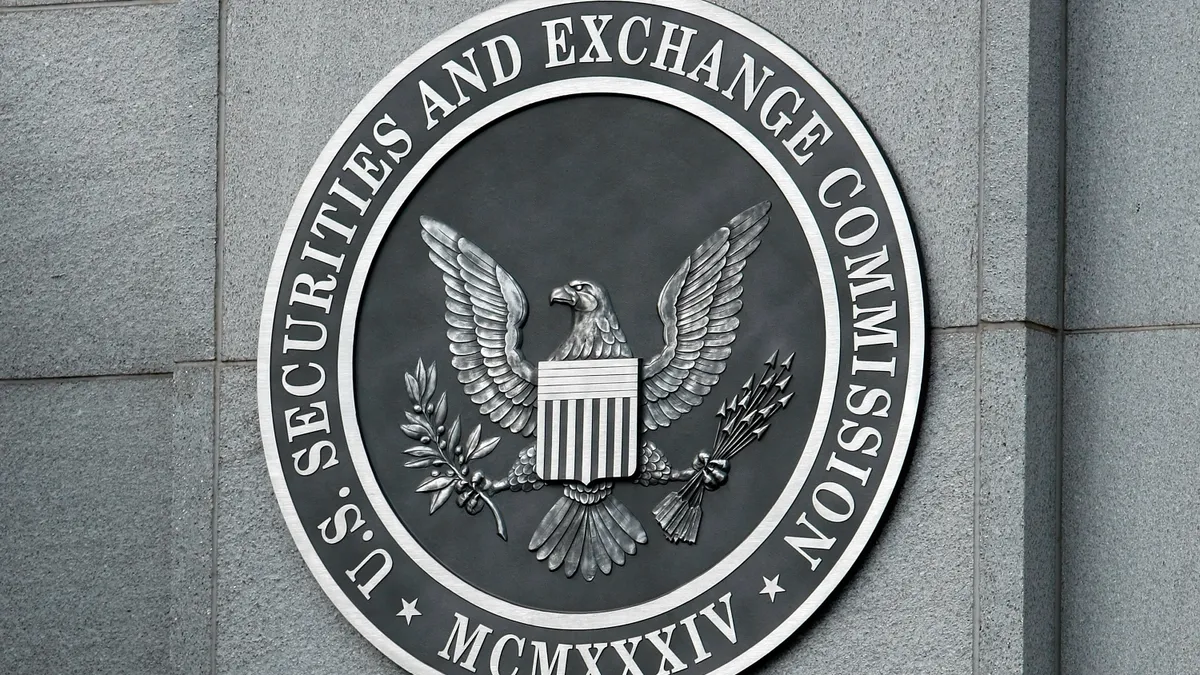Dive Brief:
- The Securities and Exchange Commission on Monday fined Lyft $10 million for failing to disclose the sale of $424 million worth of private shares before the company's initial public offering in March 2019.
- Prior to the IPO, a Lyft board director arranged for a shareholder to sell shares to a special purpose vehicle created by an investment adviser affiliated with the director, the SEC said. The director contacted an investor interested in buying the shares through the SPV and received millions of dollars in compensation from the investment adviser for his role in the deal, the agency said.
- Lyft was involved in the sale, the SEC said, noting the company approved the transaction and “secured a number of terms in the contract.” Lyft neither admitted nor denied the finding, the agency said, without identifying people involved in the deal.
Dive Insight:
Under U.S. securities law, companies are required to report to the SEC transactions in stock exceeding $120,000 “in which a related person had or will have a direct or indirect material interest,” the agency said in its order.
Although Lyft in its 10-K for 2019 reported some so-called related-person transactions, it failed to disclose the sale of the shareholder’s 2.6% stake in Lyft and the director’s interest in the sale of the 7.7 million shares, the SEC said. The director resigned from the Lyft board two weeks before the IPO.
“The federal securities laws required Lyft to disclose that a director profited from a transaction in which Lyft itself was a participant,” Sheldon Pollock, associate regional director of the SEC’s New York regional office, said in a statement.
In January 2019, about two months before the IPO, the owner of the 2.6% stake in Lyft declined to sign a lock-up agreement to hold shares for 180 days following the offering, expressing a desire to sell half or more of the holdings.
A special committee of the Lyft board rejected the request, “in part due to stated concerns of insider trading arising from material, non-public information learned by [the] director in his position as a member of the Lyft board of directors that could be imputed to [the] shareholder,” the SEC. The shareholder in 2015 had appointed the director to the board after making an investment in the company.
In early March 2019, the board approved a proposal from the director that the shareholder sell the shares to the director or an affiliate in a private transaction, the SEC said.
The director, the shareholder and an investor “negotiated a deal in which [the] investor would acquire shareholder’s approximately 7.7 million shares pre-IPO at a discount to the anticipated IPO price, through a newly formed SPV created and managed” by an investment adviser.
Lyft, the shareholder and the SPV signed a stock transfer agreement on March 15, 2019 — the same day that the director resigned from Lyft’s board. Two weeks later the company conducted an IPO of its Class A common stock.
The director was an employee of the investment adviser and received a fixed salary and compensation for “bringing investment opportunities” to the adviser, the SEC said.
The director did not disclose to Lyft “his compensation or his material interest in the transaction,” which, by terms of an agreement with the adviser, entitled him to receive 50% of the management fees and 85% of the performance fees generated from the deal,” the SEC said.
As a result of the share sale, the director was due to receive $9.8 million from the investment adviser, the SEC said. In subsequent negotiations, “that amount was ultimately reduced to a lower seven-figure amount.”
Lyft did not respond to questions about the SEC charges.















